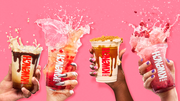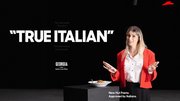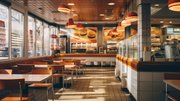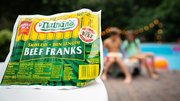Article
Checkers grows by thinking outside the box
Non-traditional units and new store design models provide more options.
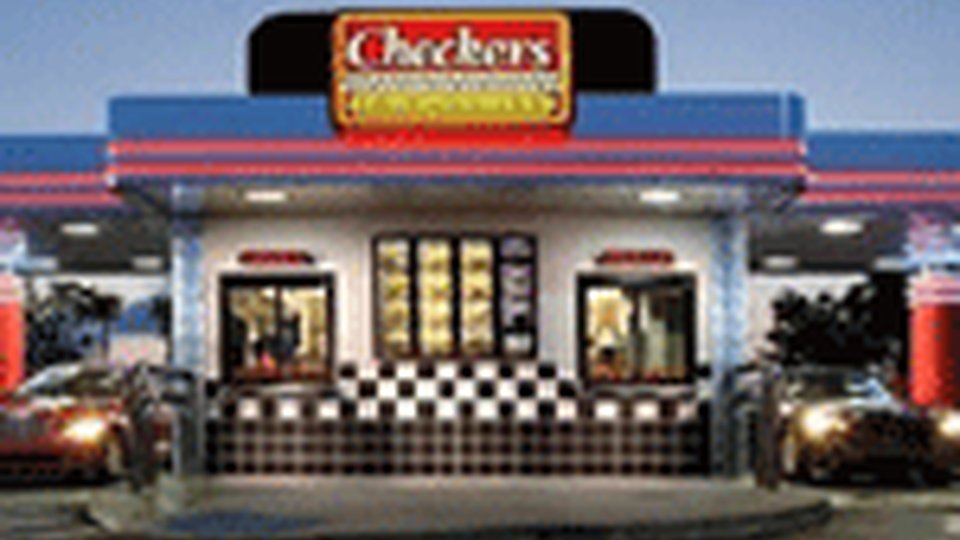
August 4, 2009
*Click here to view a slideshow of Checkers' non-traditional units.
Brands from Subway to Dunkin' Donuts have found growth opportunities in non-traditional locations. Subway, for example, has more than 7,100 non-traditional locations — nearly one-fourth its total units — worldwide, in locations from universities to airports. Dunkin' Donuts recently announced it has opened 24 such locations in Florida alone.
Now Checkers/Rally's Drive-In Restaurants is growing by thinking outside of its stainless steel box. In the first half of this year, the company opened eight non-traditional locations, nearly one-third of the Checkers' 23 new stores. The company's new store design options, including endcap and in-line, also are fueling restaurant openings.
Expanding purposely into non-traditional locales is a new venture for Checkers and where the company sees great potential, said Michael Arrowsmith, senior vice president of development for Checkers Drive-In Restaurants Inc.
"We're pleased with what's happened, but we wish it would be a little bit faster and we're looking for other opportunities," he said.
Challenges and potential
That slow progress is due to the nature of the segment. Concession locations, for example, are contract driven, so new locations are subject to bid openings.
Since Checkers is new to the non-traditional segment, getting its name out is another challenge, Arrowsmith said. But the company is aggressively marketing its interest in such locations for the first time.
Travel industry leaders Areas USA and Delaware North Cos. are two new franchisee groups leading Checkers' push in non-traditional locations. Areas USA and its parent company, Barcelona, Spain-based Areas, operates more than 1,200 travel-related food, beverage and retail establishments around the world, including Spain and the United States.
The company has opened Checkers Restaurants at the Ft. Pierce and Canoe Creek Travel Plazas in Florida. The Areas USA Florida Checkers locations replaced Burger King stores and required overnight conversions.
"These openings were some of the most challenging in our history," Arrowsmith said. "At 6 p.m. they were one brand, and by 6 a.m. the following morning, they were Checkers." Buffalo, New York-based Delaware North opened three new Checkers locations in the second quarter, one at the Buffalo International Airport and two New York Turnpike locations, Seneca and Pembroke Travel Plazas.
Other non-traditional locations opened during the second quarter included a convenience store location, a dining room-only restaurant in Brooklyn Heights, N.Y., and a food court at Mississippi Valley State University.
Arrowsmith said the non-traditional venues not only help the brand with its growth plans but also with brand reach. Travel plazas and airports, for example, see a lot of foot traffic.
"It's just great exposure for the brand, both from a sales perspective of people being familiar (with the chain) but also from a franchising perspective," he said. "People that may or may not be familiar with Checkers (now) have an opportunity to really learn a lot (about it)."
More store design options
Checkers/Rally's also has broken tradition with several new store models, which became available last summer. Both brands are known for their modular stainless steel double drive-thrus, but relying only on that model could stymie growth, Arrowsmith said.
"Last year, we took a look at if we're really going to grow this brand to its potential, we can't limit ourselves just to a modular double drive-thru," he said.
The drive-thru only model, for example, meant the brand couldn't open in dense downtown areas. And more communities are regulating exterior store designs.
To help, the company created a stick-built model, something franchisees have requested for some time, not only to accommodate local building codes but also to reduce construction costs, Arrowsmith said.
To allow for development in downtown New York where drive-thrus aren't practical, the company developed the in-line model. For growth in shopping districts, the company came up with an endcap unit with a drive-thru. Both models are available only in markets with existing Checkers or Rally's to ensure consumers are first familiar with the companies' branding.
Arrowsmith said the new design options are helping spur the chains' growth. Franchisees like the stick-built model — as well as a conversion option. The store design used the least is the in-line unit because it has limited applications. Operators prefer the endcap model because it allows for the drive-thru.
"In our business, you have to have a drive-thru unless you're in a special area," he said.
Although Arrowsmith declined to provide numbers, he said the company plans to double last year's growth, "and we believe we can probably double that again in the year after."
The company has 840 units between the two brands, including 12 non-traditional locations. About one-third of the units are company owned. There are about 500 Checkers, located primary in the Southeast and Northeast. Rally's has about 300 to 350 units in the Midwest and on the West Coast.
The company's growth plans are not without its challenges, however.
"The challenges that we face are the same challenges that every franchisor is facing right now, and that is the financing markets and the turmoil in the financing markets," Arrowsmith said. "(Those) are probably the biggest hurdles that we have to overcome."
 ChatGPT
ChatGPT Grok
Grok Perplexity
Perplexity Claude
Claude